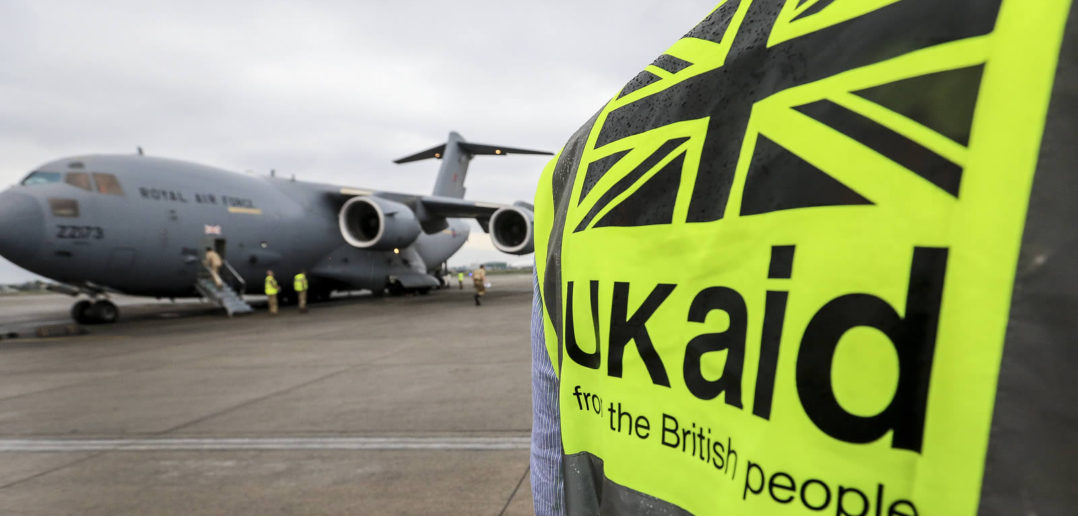In its reviews of the country’s aid spending at the start of December, the British government awarded multinational aid organisations grades based on the “value for money” they offer British taxpayers. The Multilateral Development Review is part of a major audit into the UK’s development commitments overseas, with aid organisations graded on how well they match the goals of the British government and how efficiently they are run.
Britain might be among the world’s top donors, but the Conservative Party sees Britain’s charitable spending as a prime target for the chopping block. The review’s findings have already created consternation in the aid community. While the World Bank, the Global Fund to Fight AIDS, the Vaccine Alliance, and others achieved top grades, the United Nations Educational, Scientific and Cultural Organisation (UNESCO) saw its organisational strength rated as “weak”. UNESCO’s director-general, Irina Bokova, slammed the review and suggested that her agency’s feedback had not been taken into account, while key facts about the body had been ignored.
Even if it runs the risk of provoking spats, the UK’s concern for where its money goes is understandable. Last year, Britain spent £12.2 billion on international development, meeting a UN target that encourages developed countries to donate 0.7% of their gross national income to foreign aid. David Cameron committed the government to fulfil the target by passing the International Development Act in 2015, even after a similar review conducted back in 2011 had found that eighteen bodies offered only “adequate” or “poor” value for money.
That legislation played a significant role in bolstering Cameron’s credentials as a “compassionate Conservative”. He argued that Britain’s spending commitments not only boosted its status in the world but also made it safer by stabilising future trouble spots. Many of the prime recipients of these funds are in Africa: Ethiopia, Sierra Leone, and Nigeria ranked among the largest beneficiaries of British bilateral aid last year, with the Ebola outbreak pushing the UK to direct more funds to countries like Sierra Leone as they tried to come to grips with the lethal epidemic.
Under Theresa May, the government has retained Cameron’s rhetoric but is still reassessing the budget. International development secretary Priti Patel has a lengthy record of criticising the way British donations are used overseas. She has suggested diverting a substantial amount of the budget into private sector development through the government’s own private equity firm, the CDC Group. The prospect of a major state donor like Britain bypassing multilateral organisations is naturally discomfiting to them, though Ms. Patel has castigated some of the largest ones for their “wasteful” practices and “superficial” projects. During a recent trip to Kenya, she threatened to shut down British funding to agencies the Multilateral Development Review suggests are wasting money.
For all of their tough talk, Patel and her department were surprisingly lenient with some organisations with the most room for criticism. The report concluded that one, the World Health Organisation (WHO), met the government’s aims and rated its organisational effectiveness as “adequate”. That relatively kind assessment is at odds with the fierce criticism levelled at the WHO’s management of recent health crises, including its “egregious failure” in not responding fast enough to the spread of Ebola. There is also the matter of the cholera outbreak that claimed more than 9,000 lives in Haiti in 2010, which was caused by United Nations peacekeepers and which the UN’s own human rights special rapporteur as a “disgrace”.
While other aid spending questions may be earning more headlines, the debate between the WHO and the British health community over fighting growing smoking rates in Sub-Saharan Africa is exactly the kind of issue where the British government can secure the most savings. Unlike Ebola, this health crisis in the developing world is coming with plenty of advance warning.
Mozambique, the most extreme case, has recorded a 220% increase in cigarette consumption over the past 16 years, but the Mozambicans aren’t alone. In 2013, the American Cancer Society projected that the number of smokers in Africa would increase seven-fold to over 570 million between now and 2100. There was a silver lining to that projection, however: Africa’s tobacco epidemic is still in its infancy, and concerted prevention could still head it off.
As it happens, the WHO and the UK government have conflicting views on some critical health questions. One of the most important is the WHO’s stance toward e-cigarettes, which is diametrically opposed to that of both the National Health Service (NHS) and the Royal College of Physicians. Britain’s health bodies back e-cigarettes as a safer alternative to smoking that can help users quit tobacco, but the WHO’s Framework Convention on Tobacco Control (FCTC) doubled down on rejecting that argument in its most recent summit in India.
A number of health advocates accuse the FCTC of failing to give contradictory evidence a fair hearing, criticisms the Convention has helped fuel by holding its discussions behind closed doors and without media present. This is not a purely academic argument: the debate over how to stem the global increase in smoking rates has very real consequences. Dealing with tobacco-related illnesses such as lung cancer and heart disease will divert already strained aid budgets away from the types of projects that can create long-term growth. Instead of financing durable initiatives, the global community will be called upon to deliver yet more band-aid solutions. This is the lesson global health bodies should understand: an ounce of prevention is worth millions of pounds in cures.




